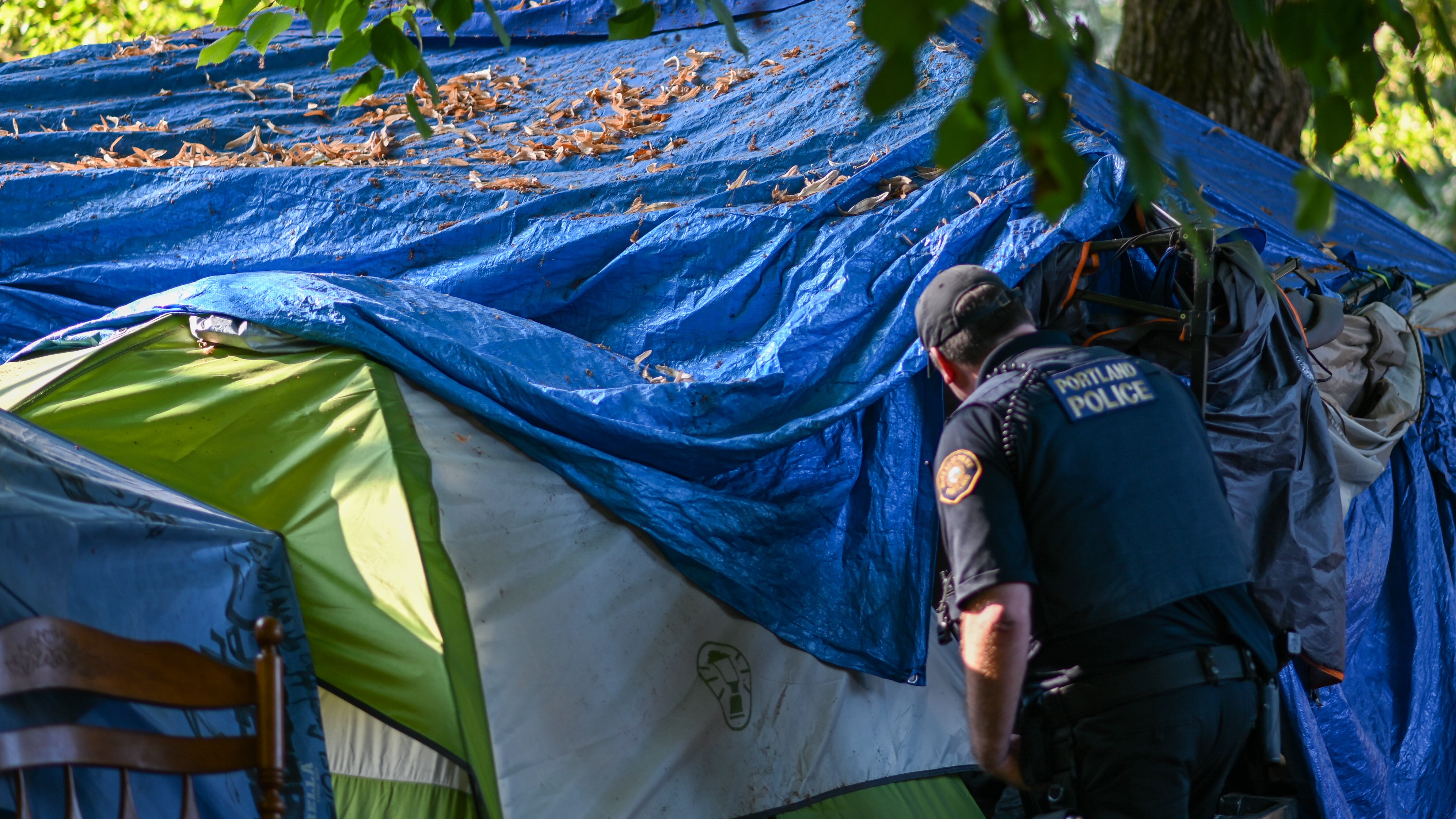The Portland City Council approved a daytime camping ban Wednesday afternoon that gives police officers the authority starting in early July to arrest and jail or fine people who are camping outside and refuse shelter.
The council’s 3-1 vote marks a meaningful turning point in how the city approaches persistent homeless camping across the city. For the first time, the city will fine campers up to $100 or impose jail time for up to 30 days for campers that repeatedly violate the new rules—which include no fires, no blocking of sidewalks or public property, no leaving behind personal objects or trash, and no camping on public property between the hours of 8 am and 8 pm.
That means campers can pitch tents overnight, but must have packed up and vacated the spot before most of the city is awake.
Mayor Ted Wheeler and Commissioners Dan Ryan and Rene Gonzalez voted for the ban. Commissioner Mingus Mapps, who says he supports the ban, was not present and chose not to vote remotely.
“These reasonable restrictions, coupled with our work on increasing shelter availability, are a step in the right direction to the revitalization of Portland,” said Wheeler, whose office put together the rules package. The new ordinance goes into effect July 1, in line with a 2021 law passed by the Oregon Legislature that requires all cities to implement rules on when, where and how people who don’t have shelter can camp. Several other cities have crafted similar policies in recent weeks.
Commissioner Carmen Rubio cast the lone “no” vote.
“This council had a public discussion last year related to our values around camping bans….We committed to exclude any provisions that would criminalize people solely for being homeless,” Rubio said, “and it’s not clear to me at this time if this ordinance maintains that commitment.”
Meanwhile, Wheeler is attempting to site six mass sanctioned encampments that can hold up to 200 people each and provide basic sanitary and case management services. None of the sites is yet open, but the mayor’s office says at least one will be operational in the coming weeks.
In statements to the press, Wheeler’s office emphasized that people who broke the rules would receive three warnings and the choice to live in a shelter. (Critics have responded that many homeless people avoid shelters because they consider them unsafe, they can’t bring their pets, or they are required to abstain from alcohol and drugs.) The mayor’s office contends that people who refuse shelter can no longer be considered “involuntarily homeless,” the legal standard that protects people’s right to sleep outside.
“The ordinance will be phased in using a series of warnings before someone is subject to criminal enforcement,” Wheeler’s office said in a statement. “If a person has been offered alternative access to shelter or housing, and they decline to use those alternatives, then they are prohibited from camping anywhere in the city because they have an alternative place to go.”
Officers with the Portland Police Bureau can issue citations or arrest violators of the ban. It’s unclear what guidance, if any, the Police Bureau has received from the mayor’s office regarding expectations of enforcement of the ban, but Wheeler’s office says it will convene meetings in the coming weeks with the bureau, the Multnomah County District Attorney’s Office, and street outreach workers to discuss enforcement.
Portland Police Association president Aaron Schmautz says he’s heard no specific guidance yet from the mayor’s office.
“Whether or not he’ll direct certain resources to enforcement, I can’t speak to that. I have not heard any specific plans yet,” says Schmautz, who adds that he supports the policy passed by the council. “We don’t have any tools currently for when someone is like, ‘I’m not leaving.’ This is a tool that exists now when we have no other options.”
A Police Bureau spokesperson directed all questions about officers’ role in the ban to the mayor’s office.

